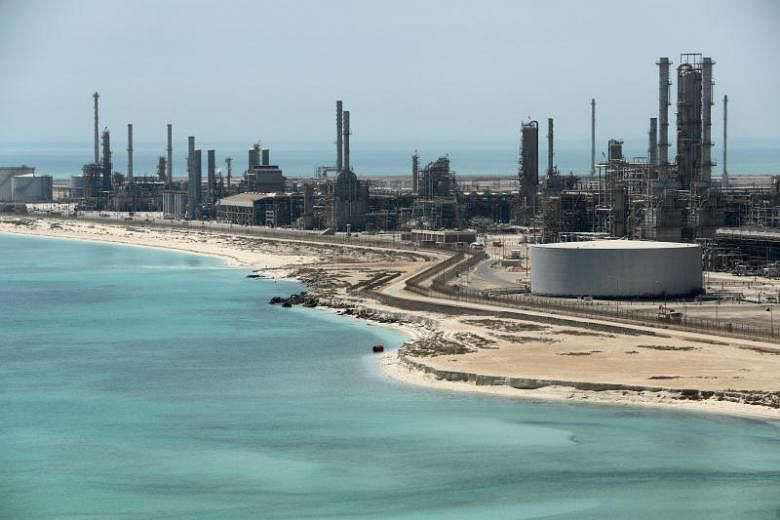DUBAI (BLOOMBERG) - If the world's biggest crude exporter says it is going to ramp up production, prices usually drop.
But as Saudi Arabia adds barrels before its customers get burned, prices have jumped. And United States President Donald Trump is not happy.
Mr Trump tweeted on Saturday (June 30) that the Saudi king had agreed to raise production to cut the cost of oil for consumers.
While the White House later backpedalled from his assertion, Mr Trump on Sunday compounded the pressure, demanding that Opec stop what he called its manipulation of the oil market and insisting the group pump more.
Saudi Arabia last month led the Organisation of Petroleum Exporting Countries and allies, including Russia, into a deal aimed at cooling prices.
While sticking to a 2016 agreement limiting output, they decided to pump more to offset lost supply from Opec's Venezuela and Libya.
Brent crude has gained 3.7 per cent since then, due to those lost barrels, and Mr Trump's call for allies to stop buying from Iran.
The benchmark dropped 1.5 per cent to US$78.22 a barrel at 7.25am in London.
"Saudi Arabia is under massive pressure," said Mr Jaafar Altaie, managing director of consultant Manaar Group in Abu Dhabi.
"The Saudis would prefer a gradual increase in oil production that won't shock the market. They prefer keeping prices between US$70 and US$80 a barrel. But for political reasons, they need to react to Trump's demands."
Mr Trump tweeted ahead of Opec's June 22 meeting that he hoped the group would add barrels, following up on a message he sent in April during an earlier producers' meeting.
China, the world's biggest oil consumer, and India, the country with the fastest-growing appetite for energy, added their own complaints after prices rose.
Iran, Opec's third-largest producer, lashed out at Mr Trump's interventions and Saudi Arabia's accommodating responses.
Opec should reject the US call for a production increase that is "politically motivated against Iran", Oil Minister Bijan Namdar Zanganeh wrote in a letter to the Opec president.
An increase in any nation's output beyond limits that Opec set in 2016 would breach the agreement, he said.
"The deal's over," said Mr Robin Mills, chief executive officer of consultant Qamar Energy in Dubai.
"It is a real blow to Opec, in part because of the impression the Saudis are following US bidding, but mostly because Saudi Arabia and Russia had stitched up a deal to raise production anyway even before the meeting."
Mr Trump's comments could also complicate the planned sale of shares in Saudi Arabian Oil Co, Manaar's Altaie said.
The initial public offering is the centrepiece of the kingdom's strategy to diversify its economy away from oil, and the government says it could generate US$100 billion (S$137 billion).
The US President's involvement "adds to the problems that already exist in such a huge and complex IPO", Mr Altaie said.
"It furthers the impression that there is a lack of independence in the company and makes it look like Trump is setting Saudi oil policy."
Saudi Arabia, which pumped 10.03 million barrels daily in May, could tap some of its two million barrels a day of unused production capacity to stabilise markets.
But adding that full amount of crude would create a glut and could cause prices to plunge, according to analysts Wood Mackenzie Ltd and Qamar's Mills.
It could also backfire, by deepening the divisions between geopolitical rivals Saudi Arabia and Iran and spooking markets that look to the kingdom as the world's producer of last resort.
"More oil in the market has to be bearish," Mr Mills said. "But in the longer term, there is the countervailing issue of spare capacity that could turn out to be bullish."

